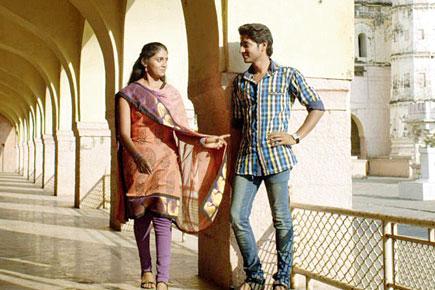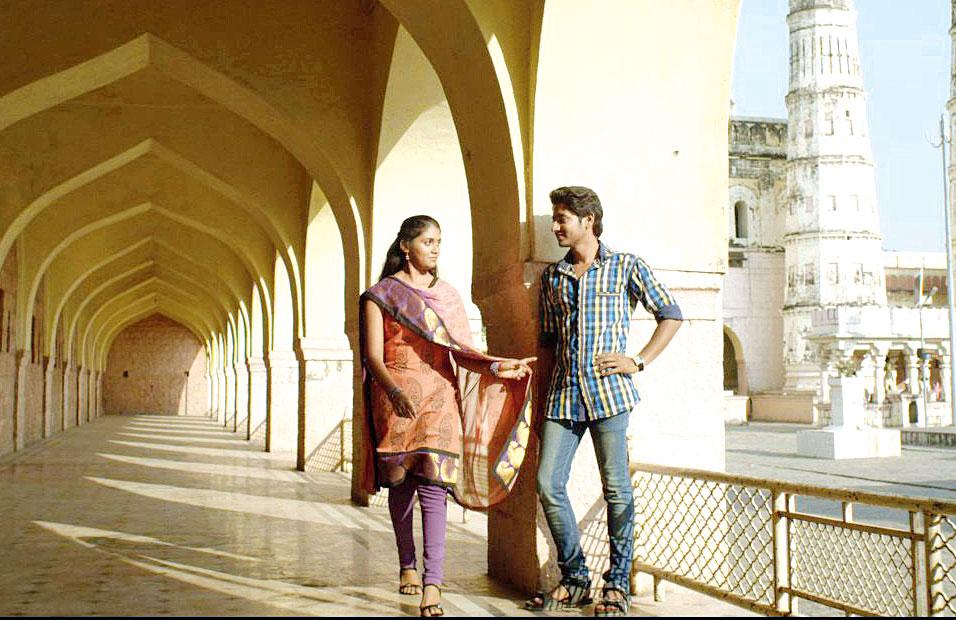I saw Nagraj Manjule's Sairat (Wild, Marathi, with English subtitles) for the fourth time at last week's preview in Mumbai, before it opened last Friday. Twice before recommending it strongly to the Berlin Film Festival

Nagraj Manjule's Sairat
 I saw Nagraj Manjule's Sairat (Wild, Marathi, with English subtitles) for the fourth time at last week's preview in Mumbai, before it opened last Friday. Twice before recommending it strongly to the Berlin Film Festival.
I saw Nagraj Manjule's Sairat (Wild, Marathi, with English subtitles) for the fourth time at last week's preview in Mumbai, before it opened last Friday. Twice before recommending it strongly to the Berlin Film Festival.
ADVERTISEMENT
I was delighted when the film was selected by them, because my job is to make talented Indian and South Asian filmmakers shine internationally. I saw it again at its world premiere in Berlin, where it got a rousing reception from the international audience. Yet, here I was, roaring with laughter and deeply moved. A 'rom-com', Sairat is supremely entertaining and funny; with romance, song and dance and suspense, then suddenly, the climax socks you in the solar plexus. An unforgettable masala film, like you've rarely seen. Do yourself a favour — book your tickets immediately.

Nagraj Manjule's Sairat
The film explores the teenage love story of the feisty, upper caste Archie (Archana, played by Rinku Rajguru, who won the National Award Special Mention; a revelation and wonder) and the charming low caste Parshya (Prashant Kale ie Akash Thosar) in Bitargaon village, who feel the full brunt of the caste system. When they are caught kissing, the upper castes torch Dalit homes, and have false kidnap and rape charges slapped, to have Parshya and his friends arrested. Finally, the couple elopes to the big city. In the anonymous freedom of the metropolis, they settle into domestic bliss with jobs, a baby, a flat. Until that climax you'll never forget.
It's a powerfully feminist film, and Manjule's village heroine does what few Bollywood heroines can do: she makes all the moves on her boyfriend, rides an Enfield Bullet, shoots her dad's goons, and even rescues the hero and his pals from police detention. Do you think Bollywood's sixpackwallahs Salman Khan, Akshay Kumar & Co would allow a teenage village girl to rescue them? Ouch! Manjule makes the case, as I have pointed out before, that when upper caste women get power, they tend to dismantle caste and patriarchy and make for a more egalitarian, humane society. Whereas upper caste men in power usurp the law to oppress the lower castes, defend fake honour, caste hierarchy, patriarchy and entitlement.
Manjule is in absolute control of his craft. His screenplay is compelling. His outrage is explosive because he downplays the big moments. For instance, Tatya Patil's half-proud smile when he hears his loutish son 'Prince' has thrashed his college professor for telling him not to talk on the mobile phone in class. It is fascinating how the revolt against the caste system comes not from politicized Dalits, but an upper caste teenage girl in love, pushed to the brink. There's a passing scene of Hindutva goons thrashing couples in the street, it is not underlined; nor is the Hindu-Muslim dosti of the lower caste Parshya and his friends.
And thank you, Nagraj, for understanding that women find a man who is gentle and shy, infinitely sexier than Bollywood's barrel-chested gorillas who toss exploding trucks in the air. Contrast Manjule/Parshya's shy male gaze at the wet Archie in the well, with Bollywood's slobbering male gaze at the wet Mandakini in Ram Teri Ganga Maili. Nagraj Manjule and Bharat Manjule's sharp dialogues make us feel for all their characters.
There are outstanding ensemble performances, especially by Rinku Rajguru, but also by Thosar and the minor cast. Sudhakar Reddy's cinematography is superbly evocative, with meticulous sound design by Avinash Sonawane. And the height of Indian creative jugaad? They shot the songs without the songs! Zee Studios and Manjule's Aatpat Production have co-produced the film, partly shot in Jeur village, Sholapur, Manjule's hometown.
Manjule's Fandry too was an intercaste love story, but Sairat goes mainstream. Ajay-Atul's music (Zingat) is catchy, but four songs and Western waltzy music are too much and detract. The second half drags a bit — the film is long at 2hours 54minutes — but these are minor quibbles in a haunting film. It's a fine balance between uproarious comedy and poignant social comment, rarely accomplished even in world cinema.
Sairat's caste outrage comes from the director's lived experience, as distinct from powerful films on caste made by privileged, but empathetic directors; Sairat shines up there with the best, along with Shyam Benegal's Samar. Ravi Jadhav's Timepass-1, which had explored an inter-class romance, was utterly delightful. Here, Manjule's inter-caste rom-com is imbued with a venomous sting, powerful depth and social commentary. He holds up a mirror — and we can't face ourselves. Kuch toh seekho, Bollywood!
Meenakshi Shedde is South Asia Consultant to the Berlin Film Festival, award-winning critic, curator to festivals worldwide and journalist. Reach her at meenakshishedde@gmail.com.
 Subscribe today by clicking the link and stay updated with the latest news!" Click here!
Subscribe today by clicking the link and stay updated with the latest news!" Click here!







